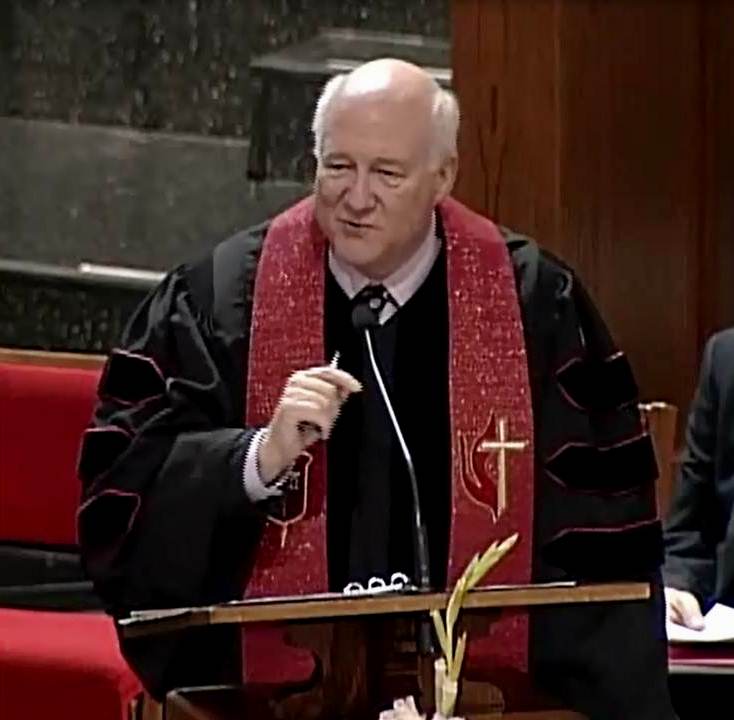Often I will ask what people are reading, as a conversation opener and also as a window into their interests and beliefs. It’s especially revealing among clergy and other church people. In July at the United Methodist Northeast Jurisdiction Conference, delegates had bio sheets from all the candidates for bishop that included the candidates’ most formative books and authors. It seemed very helpful. Citing C.S. Lewis versus John Shelby Spong obviously is significant!
This week United Methodist Bishop Mike Lowry of the Central Texas Conference helpfully blogged about his current reading list. No doubt unfairly, I often imagine United Methodist bishops reading books about radical inclusivity or mechanical church growth formulas. Bishop Lowry’s list is more substantive.

“Thirty years the pastor of a local church, I lived out of the conviction that the pastor should be the resident theologian of his/her appointed community of faith (local faith),” Lowry wrote. “Being elected bishop has not in any way changed that conviction. To the contrary it has strengthened it.”
Lowry noted it’s easy to get lost reading about the “church and its life” while neglecting “cardinal theological insights and the deep, spiritually rich doctrines of the church,” consequently missing the “nourishment of the faith’s great teachings.” He likens it to eating lots of starches and contracting scurvy for lack of Vitamin C.
This Summer Bishop Lowry read orthodox British Anglican theologian Alister McGrath’s Heresy: A History of Defending the Truth and New York Times columnist Ross Douthat’s Bad Religion: How We Became a Nation of Heretics. Douthat is a traditional Catholic who transitioned earlier in life through Mainline Protestantism and evangelicalism. He’s also the virtual token conservative on the Times’ op-ed page. A major theme of his book is the collapse of liberal Mainline Protestantism with no obvious successor for similar cultural hegemony. McGrath, formerly an atheist himself, is a Church of England priest and public intellectual who’s prominently critiqued the New Atheism.
Lowry is also reading an updated version of Methodist Doctrine: The Essentials by Professor Ted Campbell of Perkins School of Theology. “I am reminded again of those core convictions that led me to Methodism in the first place,” Lowry noted. “One of our major strategies for the transformation of the United Methodist Church in the Central Texas Conference is the recovery of a truly Wesleyan Theology and Spirituality.”
So Campbell, who is orthodox and a former John Wesley Fellow, is leading a retreat for the Bishop and his cabinet in September. “Whatever the future holds, we must live out of core convictions that lift high the gospel,” the Bishop explained. And he quoted St. Paul in Colossians 1:23: “But you need to remain well established and rooted in faith and not shift away from the hope given in the good news that you heard. This message has been preached throughout all creation under heaven. And I, Paul, became a servant of this good news.”
It’s a very encouraging reading list from at least one United Methodist bishop. Hopefully there are some others with similar reading habits!




Comment by David C. Morgan on August 29, 2012 at 10:07 pm
The Central Texas Conference is very Blessed and proud to have Bishop Lowry.
Comment by Jon R. Powers on August 30, 2012 at 2:45 pm
Thanks, Mark Tooley, for this wonderful, provocative post! I am sharing it with the chaplaincy staff at Ohio Wesleyan University tomorrow morning. As we begin a new academic year, this is a great challenge for both all of us and for us in conversation with our students and faculty colleagues. – Jon Powers, University Chaplain, Ohio Wesleyan